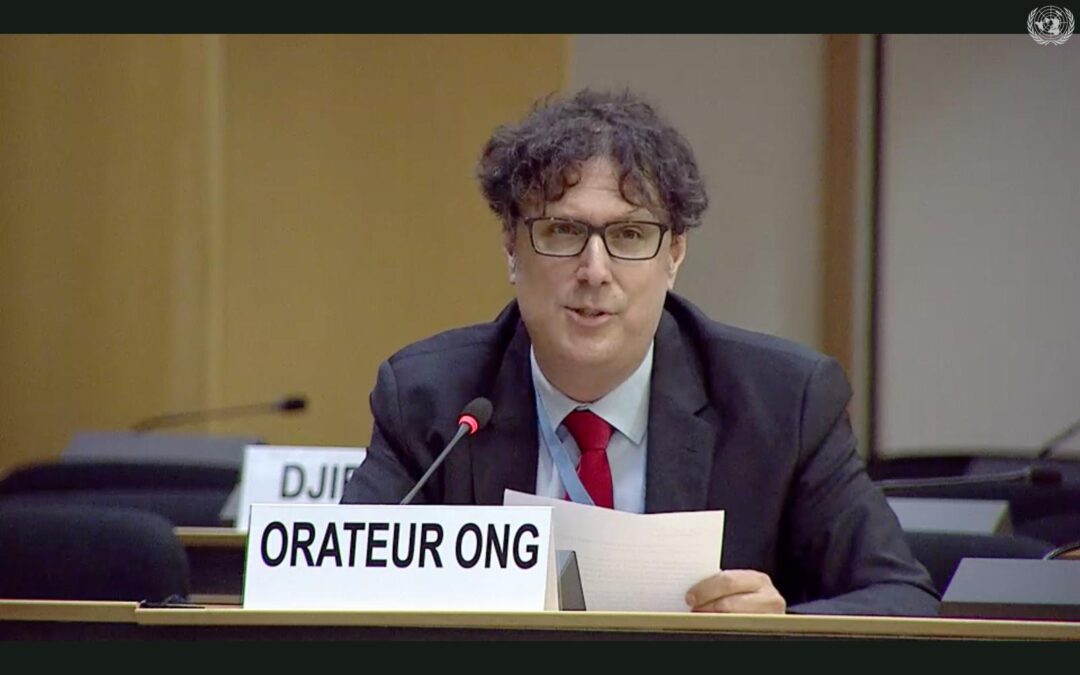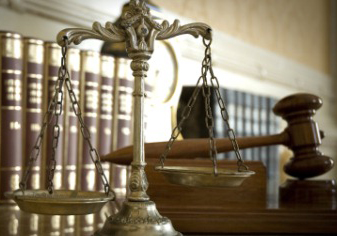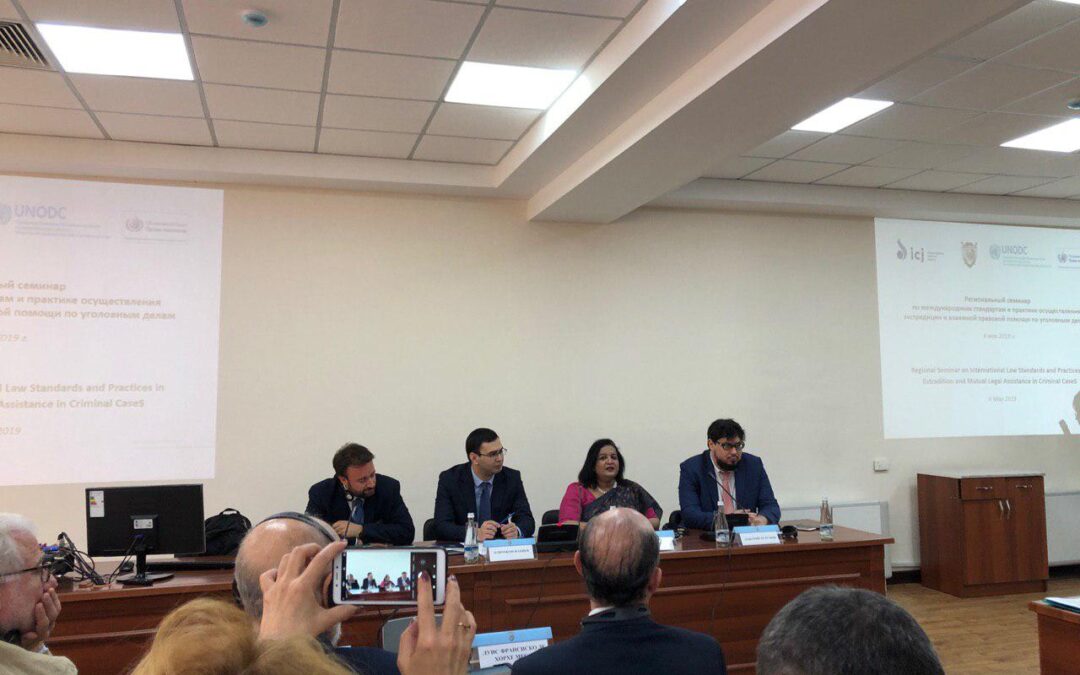
Jul 13, 2020 | Advocacy, Non-legal submissions
Speaking at the UN Human Rights Council the ICJ today emphasized the need for a human-rights-based approach to addressing corruption in justice systems, and urged more attention be given to the abuse of non-independent prosecution services by Executive governments.
The statement, delivered in an interactive dialogue with the Special Rapporteur on the independence of judges and lawyers, read as follows:
“Mr Special Rapporteur,
The International Commission of Jurists (ICJ) concurs with the affirmation in your report that justice systems must effectively counter corruption; that corruption in justice systems negatively impacts human rights; and that addressing such impacts is within the mandate of the Human Rights Council.[1]
At the same time, the UN Office on Drugs and Crime (UNODC) already actively provides resources and specialized technical expertise to States and prosecutors in implementing the Convention against Corruption. Keeping the Human Rights Council’s focus on the specific value added by a human-rights-based approach to such overlapping issues makes the best use of the Council and OHCHR’s limited resources and special competence and expertise.
For example, this report could have presented a detailed analysis of, and recommendations on, the right to remedy and reparation of victims of human rights violations caused by corruption of prosecutors, judges and lawyers. However, while the report briefly mentions victims (para 30), human rights defenders (para 31), and human rights training (para 58), and that human rights issues can impede international cooperation (para 49), but otherwise it mostly addresses technical advice for effective counter-corruption measures. The ICJ invites you to elaborate on the specific new elements a human-rights-based approach adds to the expert advice already provided by UNODC in this regard.
We also urge you to devote a future report to the manipulation of non-independent prosecution services by Executive governments to repress dissenting voices and human rights defenders, neutralize political opposition, shrink civil society space, and entrench impunity for human rights violations, which as our submission documented is no less urgent a global human rights issue than corruption, and is not a special focus of UN bodies other than the Council and OHCHR.
Thank you.”
[1] Indeed, twenty years ago the ICJ adopted a Policy Framework for Preventing and Eliminating Corruption and Ensuring the Impartiality of the Judicial System and its work against corruption in cooperation with judiciaries and prosecution services continues at the global and national levels.

Dec 15, 2019 | Advocacy, Non-legal submissions
The ICJ has urged the UN Special Rapporteur on Independence of Judges and Lawyers to ensure that his upcoming report on challenges to the independence of prosecutors, fully addresses abuse of prosecution powers to target human rights defenders, political opponents or others, or giving rise to a more general and systemic lack of fair trial for accused persons, or entrenching impunity of State perpetrators of human rights violations, as among the dominant contemporary challenges to prosecutorial independence globally from a human rights perspective.
The Special Rapporteur has made clear his intention to address challenges to prosecutorial independence arising from transnational corruption and organized crime. While the ICJ certainly agrees that such interference can and does have impacts on human rights, to varying extents around the world, the ICJ submission also highlights and documents that threats to prosecutorial independence emanating from the prosecutor’s own Executive government should be seen to be of at least equal concern from a human rights perspective, globally, and should be fully addressed in any report on “contemporary challenges of prosecutorial independence” from a human rights perspective.
The ICJ’s submission can be downloaded in PDF format here: UN-Advocacy-SRIJLProsecutors-2019

May 6, 2019 | Agendas, Events
Today, the ICJ, together with the General Prosecutor’s Office of Uzbekistan, UNODC and OHCHR are holding the first regional meeting of prosecutors from Central Asia and the Russian Federation to discuss international law and standards in the field of extradition, mutual legal assistance, the rule of law and human rights.
The workshop aims to facilitate exchange of experiences regarding the law and practice of extradition in European and Central Asian countries. Presentations at the workshop will analyse international law and standards on effective criminal justice co-operation and the protection of human rights in extradition, and their application in practice..
The workshop will present cases of mutual cooperation in the field of criminal law from national courts as well as from international mechanisms such as the European Court of Human Rights, the UN Committee against Torture and the UN Human Rights Committee.
The workshop is taking place in Tashkent (Uzbekistan) and is hosted by the Prosecutor General’s Office of Uzbekistan.
More than twenty prosecutors from Kazakhstan, Kyrgyzstan the Russian Federation Tajikistan, Turkmenistan, and Uzbekistan are participating in the event that includes international experts from UNODC, ICJ, including ICJ Commissioner and Emeritus Spanish Supreme Court Justice, José Antonio Martin Pallin, and Italian Prosecutor Lorenzo Salazar.







